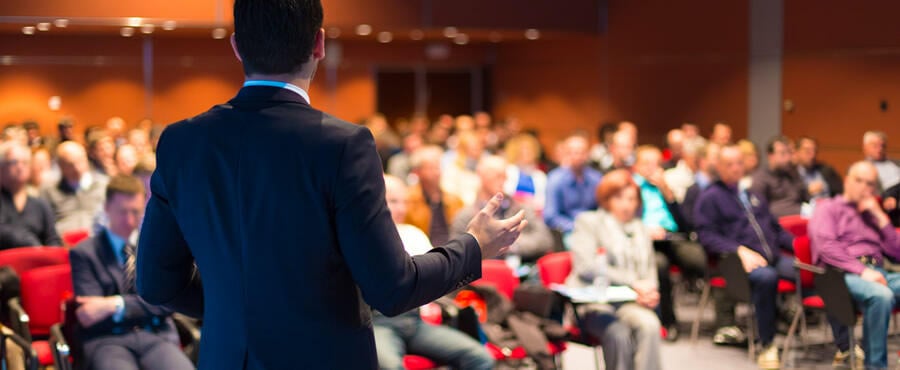Company-wide events can begin to feel predictable after the first few. But how to keep things fresh? After all, isn’t there a limit to what can be accomplished? Not at all – read on for a quick overview of two kinds of activities for corporate events, with the potential to be expertly tailored to your needs when led by professional facilitators.

Professional Development Activities
A half- or full-day program is a great opportunity to host professional development activities. A carefully crafted program can even help upper management and human resources identify and cultivate up-and-coming candidates for leadership and management teams.
Executive leadership, management, and sales team staffs can pick up additional skills or recalibrate existing strengths in response to corporate or industry changes. After all, as much as many of us might prefer not to admit it, a lot can change after one’s been on the job for a decade or two. In some industries, the roll out of big regulatory changes makes for a good time to refresh key roles, responsibilities, and tasks. Other avenues of professional development include softer skills like resolving conflict, making presentations, or adaptability.
Corporate events that include professional development activities may use these sessions to provide tailored experiences to a smaller segment of attendees, rather than the whole group. These sessions can be highly specialized based on department, position or role in the company. Consider how the needs of senior management team members may vary from the needs of the folks on the front lines of the sales department or finance department. Sometimes one-size-fits-all doesn’t actually fit anyone.

Team Building Activities for Corporate Events
Team development can boost employees’ soft skills across the board, which are so vital today, regardless of industry. A broad example of programming appropriate for corporate events includes empowering employees in decision making, improving communication and data sharing among departments, maximizing conflict resolution skills, and nurturing trust among staff. A creative, outside-the-box program that goes beyond the typical lecture and role playing activities can shake up staff and generate meaningful change that lasts beyond the day’s events.
Team building, in general, suggests the full participation of all employees. It’s a good opportunity for upper management to offer front-line staff some ‘face time’ and reinforce key company mission statements and goals. It’s also a great chance for folks across departments or locations to meet-and-greet, put faces to names, and make interpersonal connections that can improve organizational workflow and productivity.
Corporate Events are for Everyone
Rather than assume that only companies with “problems” need team building efforts, remember that as hard as one works to achieve success, one must work harder to maintain it. For example, maybe a particular team exhibits strong problem-solving skills – how do they work best to hold onto their successes? Or, consider how a company that includes a large cadre of virtual employees can generate a spirit of teamwork. There’s no limit to how well-crafted team development activities for corporate events can help employees in response to the challenges and opportunities a company faces.
